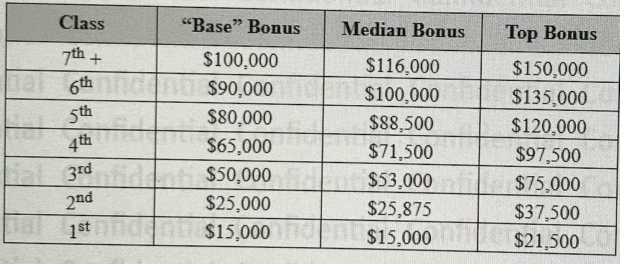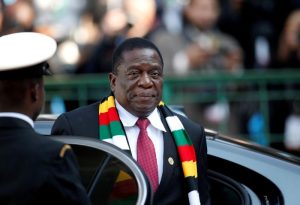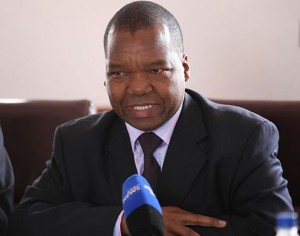Zimbabwe’s agricultural minister told officials this week that the country has only 100,000 tonnes of maize left in its strategic reserves – enough to last just over a month [File: Philimon Bulawayo/Reuters]
Chegutu, Zimbabwe – Dressed in torn, baggy safari shorts, a khaki shirt, gumboots and a sun hat, 55-year-old farmer Joseph Mupakare sits on a hand-made wooden stool at his farm in Chegutu in Zimbabwe‘s Mashonaland West province, staring at the barren blue sky.
Mupakare’s livelihood – like most Zimbabweans – has been roiled by the vagaries of a rapidly deteriorating economy. Annualised inflation in the troubled Southern African nation is believed to have topped 500 percent last year.
But as someone who makes their living tilling the land, Mupakare’s financial pain has been exacerbated by a deluge of crushing taxes and levies.
“The taxes are just too much,” Mupakare told Al Jazeera.
That pressure is not simply borne by farmers. Once considered Africa’s breadbasket, Zimbabwe is suffering from a food crisis one of its worst droughts in recent history.
The 2019 maize harvest was roughly half of the previous year’s. This week, the country’s agricultural minister told officials that Zimbabwe has only 100,000 tonnes of maize left in its strategic reserves – enough to last just over a month.
The World Food Programme, which plans to assist more than four million Zimbabweans this year, is predicting another dismal harvest in April.
Colonial legacy compounded by new levies
Zimbabwe’s farmers are grappling with a legacy of colonial-era laws, compounded by national and local taxes that have been levied since the country declared independence from the United Kingdom in 1980.
“Farmers just have too many taxes imposed on them,” said Edward Dune, chief executive of the Zimbabwe National Farmers Union (ZNFU).
“There is the rural development tax which is paid to the local government authorities, the tobacco levy on the tobacco farmer and the livestock levy,” he told Al Jazeera.
There is also a 10 percent withholding tax on produce.
The experience of tobacco farmers lays bare just how onerous the tax burden has become.
Tobacco is among the country’s most valuable export commodities, earning $933m in 2016. But those who choose to farm the crop, including Mukapare, must run a gauntlet of taxes that erode their already slim profit margins.
There is 0.75 percent government tax on all tobacco delivered to auction, and a 0.8 percent levy charged by the Tobacco Industry and Marketing Board for the gross value of tobacco sold at the auction. The Ministry of Agriculture also deducts $0.875 per kilogramme from the gross value of tobacco sold at the auction.
Before their crops even get to market though, tobacco farmers must play compliance levies for sustainable land management, including afforestaion (planting new forests) and reforestation taxes.
“I owe local authorities around 400 Zimbabwe dollars ($20 at black market exchange rates) for various taxes and levies and the government, as well,” Mukapare said.
Livestock producers also face punishing taxes.
A study conducted by the Zimbabwe Farmers Union (ZFU) found that while the country’s cattle is competitively priced for the region, compliance levies on Zimbabwe’s livestock farmers make it an uncompetitive enterprise.
“For all commodities produced in Zimbabwe, the cost of compliance is just huge,” ZFU president Paul Zakaria told Al Jazeera. “We have done a cost of compliance in the beef industry and they are not making money because of the cost of compliance.”
All of which bodes poorly for an agro-based economy like Zimbabwe’s.
“The sad thing is that farmers pay these taxes but they do not see any benefit in doing so,” economist and founder of Bullion Group, Persistence Gwanyanya, told Al Jazeera. “These taxes should bring tangible benefits to farmers but unfortunately they are not.”
The hyperinflation factor
If farmers fail to pay taxes, they could face penalties ranging from fines to jail time. But paying the myriad levies has become even tougher as the country wrestles with a severe economic crisis and the government scrambles to fill depleting coffers.
“On one hand, there is the government trying to raise taxes to finance operations and on the other hand, raising costs of production for the farmer,” Agricultural economist Mandivamba Rukuni told Al Jazeera.
Government missteps have also contributed to the higher agricultural production costs, said Rukuni.
“Government has lost control of the country’s agro-chemical industry and now relies on imports for the industry,” he noted.
The twin burden of economic crisis and drought has already led many farmers to leave their fields fallow this season.
As hyperinflation has eroded the value of the Zimbabwean dollar, prices for inputs, including seeds and fertilizer, have soared. That’s left many small farmers in a nation of smallholders unable to close the gap between increasingly costly agricultural supplies and their now-worthless savings.
In addition to tobacco, Mupakare said he will plant more than 20 hectares (49 acres) of maize when conditions are good. But they are far from ideal.
A 50-kilogramme bag (110 lbs) of compound D fertiliser costs 400 Zimbabwean dollars ($20). Mupakare says he needs at least nine bags per hectare, plus around five bags of fertilizer that currently sell for 450 Zimbabwean dollars ($22.50) each. Add in the cost of seeds and that works out to 5,250 Zimbabwean dollars (US$262.50) to plant just one hectare of maize.
The Zimbabwean government has made low-cost loans available to farmers, but Mupakare says stringent conditions that require him to pledge his farm as collateral, plus the weather, make the risk of foreclosure too great.
“The weather is looking like it’s going to be a drought. When I fail to repay the loan they will go after the security,” he said. “I am not planting any crops this season.”





 Robert Ambrogi
Robert Ambrogi



 Jordan Rothman is a partner of
Jordan Rothman is a partner of 










